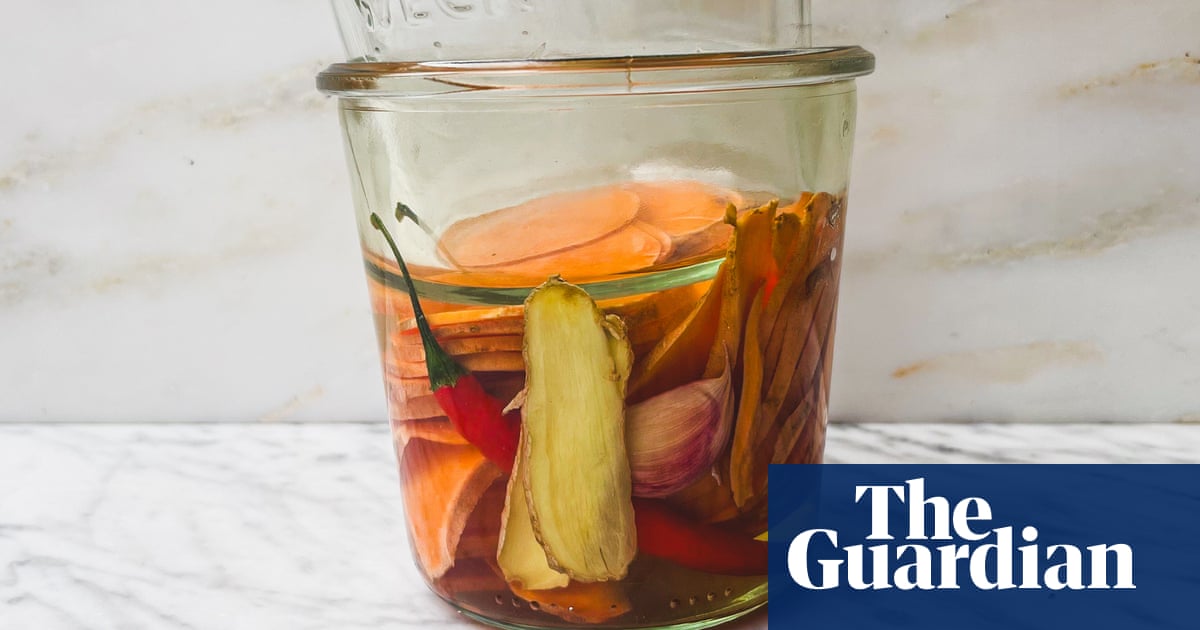
My sister-in-law is one of the most environmentally conscientious people I know, and she’s always coming up with new ideas to save waste. Her most recent is to recycle the pickling liquid from a jar of gherkins simply by reusing it to pickle more cucumbers, or other vegetables, for a day or two. She was about to chuck out some pickle juice along with a few leftover raw veg sticks that her kids had left on their plates when her inbuilt, food waste-saving mindset cut in, and she thought of this great way to save both food items. It’s now a go-to in her house for saving all sorts of veg, including cucumbers, cauliflower, carrots, celery, bell peppers and onions, and the process produces a delicious, fresh-tasting refrigerator pickle – to be safe, though, be sure to consume it within three days. To preserve the pickles for longer – up to a week – and to give them a stronger pickled flavour, hot pickle them as below.
Re-pickles
I love how this solves two waste streams at once, and without the need for any other ingredients save for a little salt. Leftover pickle juice is usually full of flavour, and includes all the flavourings that went into creating the original jar. The recycled pickle brine provides an opportunity to save vegetable odds and ends for up to a week, crisping them up and giving them a new lease of life.
When I made this, I raided the fridge to see what vegetables needed saving, and found some sweet potatoes, ginger, garlic and chilli. I’d never tried pickled sweet potato before, so thought I’d give it a try (unlike regular potatoes, sweet potatoes can be eaten raw in small quantities). I sliced it into rounds, but left the garlic clove and chilli whole. When you apply hot pickling liquor to vegetables, they’re ready to eat the moment they’ve cooled down.
Makes 1 jar
The pickling liquid from an empty jar of pickles
Fresh vegetables – any amount, up to a jar full
Sea salt, to taste
Pour the pickle juice into a small saucepan and add sea salt to taste – the liquor should be salty like the sea, but still be delicious. Sterilise the empty jar and lid (I washed them in very hot water).
Note the net weight of the pickles that were originally in the jar – it should say on the label – then gather the same quantity (or less) of fresh vegetables, cut them into 3-5mm-thick slices, rounds or sticks, and pack them in the clean jar.
Bring the pickling liquor to a boil, then pour over the new vegetables in the jar and seal. Leave to cool completely, then store in the fridge and use up within a week.
How to reuse pickle juice to make more pickles - The Guardian
Read More

No comments:
Post a Comment